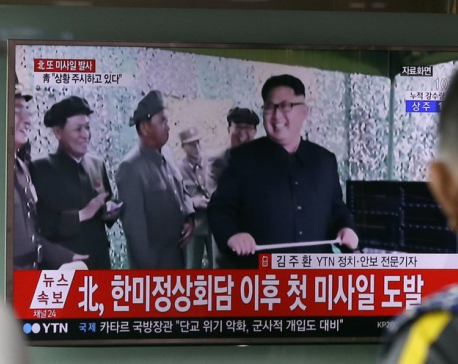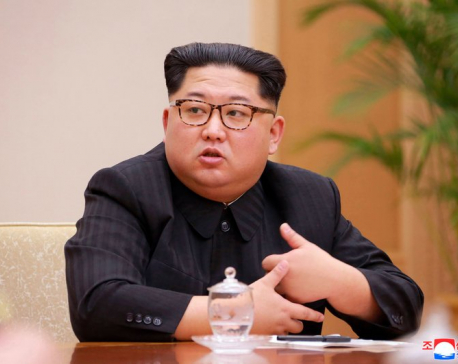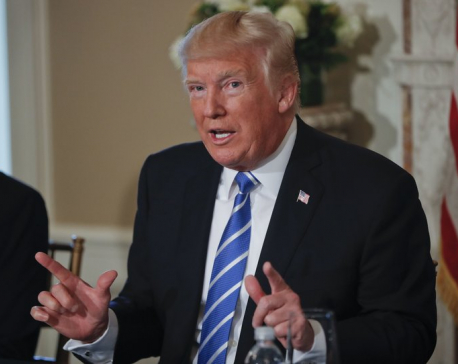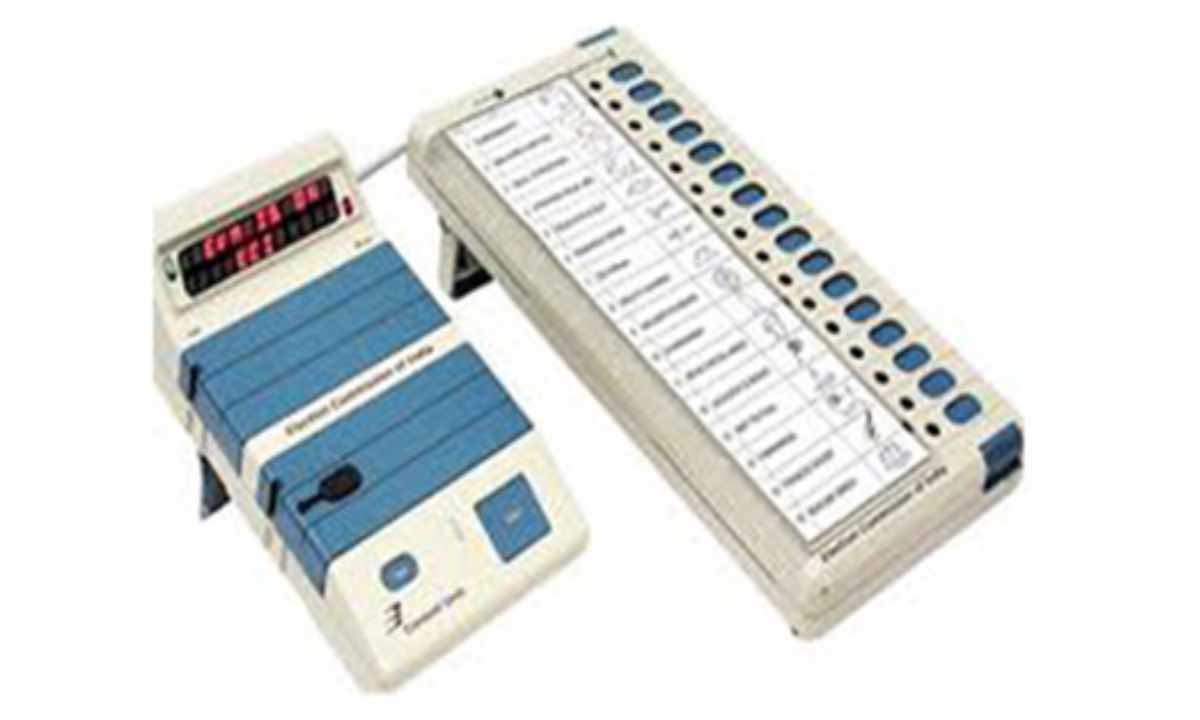
OR
North Korea says it tested new anti-ship missile
Published On: June 9, 2017 01:45 PM NPT By: Associated Press
SEOUL, South Korea, June 9: North Korea tested a new type of cruise missile that could strike U.S. and South Korean warships "at will" if the country was attacked, its state media said Friday, a day after Seoul detected four missiles being launched from a eastern coastal town.
The missiles represent the fourth new missile system North Korea said it has introduced and successfully tested this year, sending a defiant message that it will continue to pursue a weapons program that has rattled its neighbors and Washington.
"This new-type cruise rocket is a powerful attack means capable of striking any enemy group of battleships" attempting to attack North Korea and can be used "at will," the North's official Korean Central News Agency said.
It said leader Kim Jong Un observed the launches and that the missiles "accurately detected and hit" floating targets at sea after making "circular flights."
The North's claims cannot be independently confirmed.
North Korea didn't say how many anti-ship missiles it launched, but South Korea's national security director Chung Eui-yong said Friday the North fired four short-range missiles. The South's military said the projectiles were fired from the town of Wonsan and flew about 200 kilometers (125 miles) before splashing down between the Korean Peninsula and Japan.
The launch came days after U.S. aircraft carriers USS Carl Vinson and USS Ronald Reagan left those waters after joint exercises with the South Korean navy.
The North's missile tests present a difficult challenge to new South Korean President Moon Jae-in, who has expressed a desire to reach out to the North. North Korea, which could have a working nuclear-tipped intercontinental ballistic missile in the next several years, may also be the most urgent foreign policy concern for the Trump administration, which has been distracted by domestic political turmoil and has insisted China do more to rein in the North's weapons activities.
North Korea's weapons tests are meant to build a nuclear and missile program that can stand up to what it sees as U.S. and South Korean hostility, but they are also considered by outside analysts as ways to make its political demands clear to leaders in Washington and Seoul.
Moon has sought to expand cross-border civilian exchanges as a way to improve ties, but North Korea on Monday rejected a Seoul civic group's offer to provide anti-malaria supplies to protest South Korea's support of fresh U.N. sanctions adopted last week.
Moon said after the new launches that his government "won't back off even a single step and make any compromise" on the issue of national security. He also warned that North Korea could only face further international isolation and more economic difficulties.
In what will likely become another source of animosities, Moon's government said it will let two of the four North Korean fishermen recently rescued at sea resettle in the South in accordance with their wishes. The two other fishermen who want to return home were repatriated on Friday.
Pyongyang often accuses Seoul of kidnapping its citizens or enticing them to defect to the South.
Last month, North Korea premiered a powerful new midrange missile that outside experts said flew higher than any other missile previously tested by North Korea.
The North in following weeks launched a solid-fuel midrange missile that can be fired on shorter notice than liquid fuel missiles, and also what it descried a new "precision-guided" missile, which experts say is designed with a maneuverable terminal stage meant to frustrate missile defense systems like the U.S. Terminal High Altitude Area Defense that is being deployed in South Korea.
You May Like This

North Korea claims it tested first intercontinental missile
SEOUL, July 4: North Korea claimed to have tested its first intercontinental ballistic missile in a launch Tuesday, a potential game-changing... Read More...

North Korea says it has suspended nuclear, missile testing
SEOUL, April 21: North Korea said Saturday it has suspended nuclear and long-range missile tests and plans to close its nuclear... Read More...

Trump: If North Korea attacks US, it ‘will regret it fast’
NEW JERSEY, August 12: President Donald Trump on Friday issued fresh threats of swift and forceful retaliation against nuclear North... Read More...






Just In
- Youth attempts suicide amid police torture over Facebook comments against home minister
- Time to declare EVMs’ end
- World Malaria Day: Foreign returnees more susceptible to the vector-borne disease
- MoEST seeks EC’s help in identifying teachers linked to political parties
- 70 community and national forests affected by fire in Parbat till Wednesday
- NEPSE loses 3.24 points, while daily turnover inclines to Rs 2.36 billion
- Pak Embassy awards scholarships to 180 Nepali students
- President Paudel approves mobilization of army personnel for by-elections security












Leave A Comment